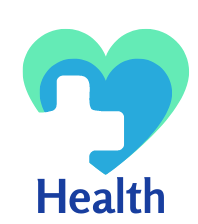In the digital age, the act of scrolling through social media feeds has been revealed to have profound impact on mental health and well being, social media has created a culture of comparison and competition, leading to increased stress, and anxiety and depression which decreased self acceptance among users.
Welcome to the age of electronic device, in our new technological world, Social media, blurred the image between reality and virtual reality, which leads to a complex interplay between social media use and mental health, with unimaginable consequences for individuals and society alike.
Here are some more facts and statistics about social media impact on mental health.
➡️ Between 2005 and 2017, symptoms of major depression increased by 52% in adolescent and 63% in young adults.
➡️ 60% of students report comparing themselves to others on social media, which can lead to feelings of inadequacy and decreased self-esteem ( student health and wellness servay, 2019)
➡️ 60% of students overwhelmed, and 40% report feeling hopeless ( American college Health Association,2020)
➡️ A study found that young people who use social media more than 2 hours per day are more likely to experience depression and anxiety.
➡️ 60% of teens who spends the most time on social media and have poor relationships with their parents are likely to experience poor mental health.
These statistics highlight the significant impact that social media can have on students mental health. Not only on student but it has also influence our society as well.
While social media has it’s negative effects on mental health, it also has some positive effects:
➡️ Nowaday many people live abroad, with the help of social media it can help people to feel connected to relatives and friends and can reduce their loneliness and stress.
➡️ Social Media allow people to express themselves and share their thoughts and feeling what they experience.
➡️ Most importantly it can help to raise awareness about mental health issues, and how to promote mental health education.
➡️ Social Media can be useful to learn how a person shared coping skill such as stress management techniques, anxiety etc.
As you know that “The World Health Organization (WHO) has identified excessive social media use as a public health risk. So it’s important to note that while Social Media has it’s positive effects, it’s essential to use It in moderation and be mindful of it’s potential negative effects on mental health.
Some of the negative effects of social media on mental health:
➡️ Unrealistic expectation and comparisons.
➡️ Increased stress and anxiety from constant notifications.
➡️ Loss of face to face communication skills.
➡️ Negative impact on relationships and friendships.
➡️ Increased risk of mental health problems such as eating disorders and suicidal thoughts etc.
Ultimately, the impact of social media on mental health depends on how we choose to use it. As we continue to navigate the digital age, it is essential that we prioritize our mental health and well being. By setting boundaries, practicing self-care, by doing this only we can promote a healthier relationship between social media and mental health.
In the end, Social Media is a tool, and like any tool, it can be used for good or ill. let us strive to social media in a way that promote connection, and mental well-being, rather than perpetuating harmful comparisons and competitions.
A call to action: ” Let’s make a collective effort to create a healthier online environment. Start by unfollowing accounts that make you feel bad about yourself and follow accounts that uplift and inspire you.
Imagine a world where social media does not exist, would we be happier, more productive, and more connected with each other?
